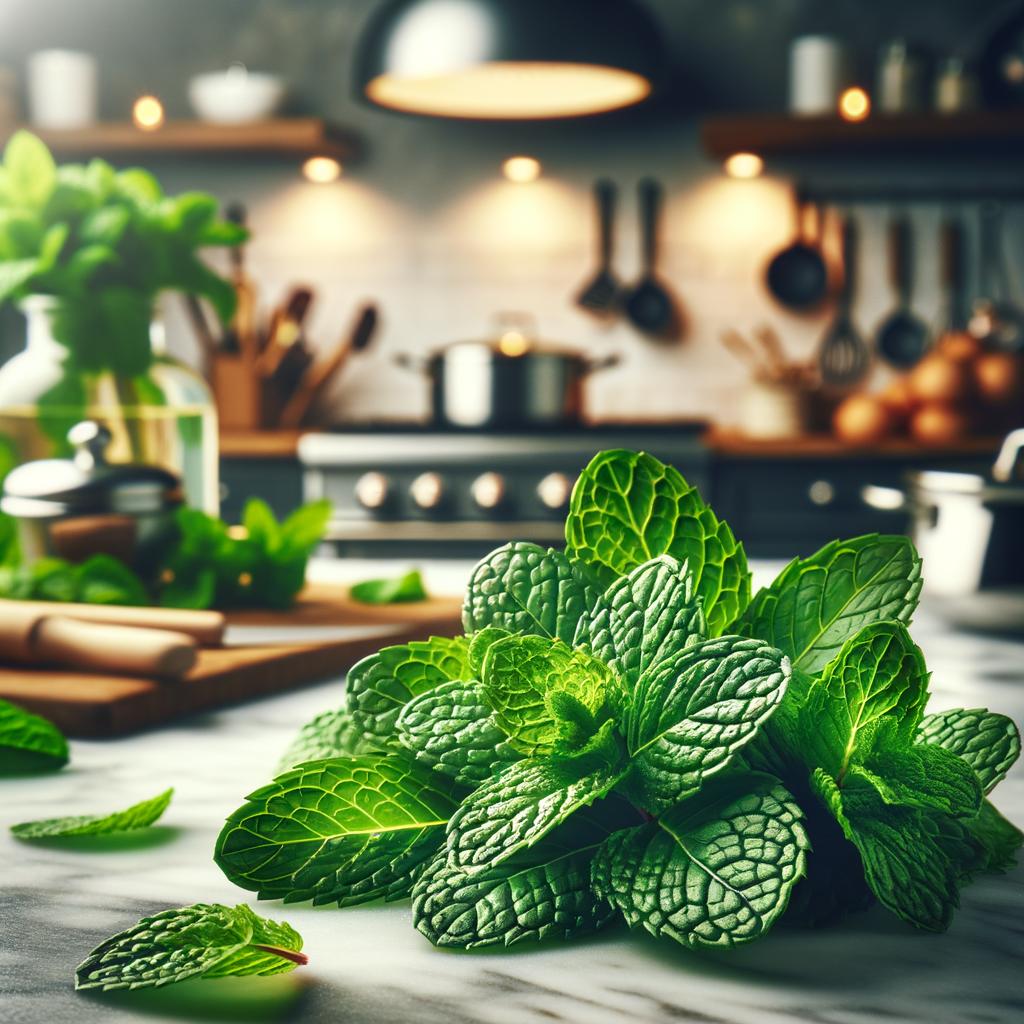Peppermint Leaves

Description
Peppermint leaves, a delightful gift from Mother Nature, are a vibrant shade of green, with a slightly wrinkled texture that feels cool and soft to the touch. Their aroma is unmistakably fresh and invigorating, a sensory hint of the flavor they bring to the palate. The peppermint leaf's taste is a refreshing blend of sweetness and spiciness, with a cooling aftertaste that lingers. This unique characteristic sets it apart from other mint varieties, making it a favorite among chefs and food enthusiasts alike.
Primary Uses
Peppermint leaves are a versatile ingredient used in a wide array of culinary creations. They're a staple in Mediterranean cuisine, adding a refreshing twist to salads, sauces, and desserts. They also play a starring role in several beverages, from the traditional Moroccan mint tea to the classic mint julep cocktail. In the realm of confectionery, they're the key ingredient in peppermint candies and chocolate mints. Beyond the kitchen, peppermint leaves are also used for their therapeutic properties in aromatherapy and herbal medicine, offering relief from digestive discomfort and tension headaches.
History
The history of peppermint leaves is steeped in myth and romance. According to Greek mythology, Menthe, a water nymph, was transformed into a mint plant by Persephone, who was jealous of her husband's affection for Menthe. The plant was cultivated in ancient Egypt, Greece, and Rome, and was valued not only as a culinary herb but also as a symbol of hospitality. Over time, its use spread across Europe and Asia, and it was introduced to the New World in the 18th century. Today, peppermint is celebrated for its invigorating scent and flavor, and its leaves continue to inspire chefs, healers, and storytellers around the world.
Nutritional Information
Peppermint leaves are a treasure trove of nutritional benefits. They're rich in essential vitamins and minerals, including Vitamin A, Vitamin C, and manganese. They're also an excellent source of dietary fiber. Regular consumption of peppermint leaves can aid digestion, soothe headaches, and even boost the immune system. Compared to other varieties of mint, peppermint contains higher levels of menthol, which contributes to its distinctive flavor and therapeutic properties. So, whether you're savoring a peppermint-infused dish or sipping a soothing cup of mint tea, you're not only indulging your taste buds but also nourishing your body.

